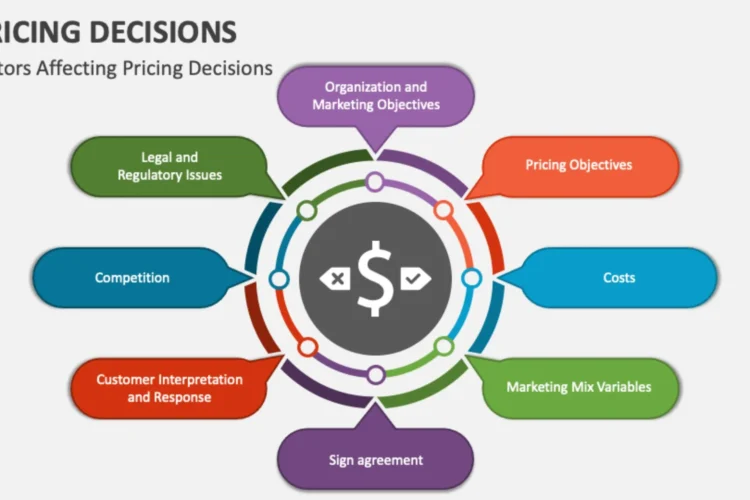
Business development serves as the cornerstone for organizational expansion and success. This article explores the intricacies of business development, covering essential strategies, challenges, and prospects to guide businesses in navigating the competitive landscape effectively.
Introduction to Business Development
Business development encompasses a range of activities to identify and exploit opportunities for growth and profitability within an organization. It involves strategic planning, relationship building, and market analysis to drive innovation and revenue generation.
Essential Components of Business Development
- Market Analysis- Thorough market analysis is essential for understanding consumer needs, identifying market trends, and assessing competitive dynamics. By gathering and analyzing market data, businesses can make informed decisions and develop targeted strategies to capitalize on emerging opportunities.
- Relationship Building-Building solid relationships with clients, partners, and stakeholders is crucial for long-term success in business development. Effective communication, trust-building, and collaboration lay the foundation for mutually beneficial partnerships that drive growth and innovation.
Strategic Planning in Business Development
- Goal Setting-Setting clear and measurable goals is essential for guiding business development efforts and assessing their effectiveness. By defining specific objectives and milestones, businesses can align their activities with strategic priorities and track progress toward achieving desired outcomes.
- SWOT Analysis-Conducting a SWOT analysis helps businesses identify internal strengths and weaknesses, as well as external opportunities and threats, informing strategic decision-making and risk management. Organizations can capitalize on strengths and mitigate weaknesses by understanding their competitive position and market dynamics to gain a competitive edge.
Effective Communication
- . Interpersonal Skills-Effective communication and interpersonal skills are essential for building rapport, resolving conflicts, and fostering productive relationships with clients, partners, and stakeholders. Business development professionals can build trust and credibility by actively listening, empathizing, and communicating clearly, driving collaboration and success.
- Negotiation Strategies-Negotiation skills are critical for securing favorable deals, resolving disputes, and achieving mutually beneficial outcomes in business development activities. By understanding the needs and motivations of negotiation counterparts, businesses can leverage negotiation tactics to reach agreements that create value and drive success.
- Presentation Techniques-Articulating ideas persuasively and compellingly is essential for conveying value propositions and gaining buy-in from stakeholders. Business development professionals must hone their presentation skills to deliver impactful pitches, proposals, and presentations that resonate with the audience and drive action.
Utilizing Technology

- CRM Systems-Customer Relationship Management (CRM) systems enable businesses to manage customer interactions, track sales pipelines, and analyze customer data to drive informed decision-making and personalized engagement. Companies can leverage CRM platforms to enhance customer relationships, streamline sales processes, and drive revenue growth.
- Data Analytics Tools-Data-driven decision-making is essential for effective business development in today’s digital age. Analyzing market trends, customer behavior, and competitive intelligence empowers businesses to identify opportunities, optimize strategies, and drive growth.
Measuring Success in Business Development
- Key Metrics-Establishing key performance indicators (KPIs) enables businesses to track the effectiveness of their business development initiatives and measure progress towards strategic objectives. By defining relevant metrics such as revenue growth, customer acquisition, and market share expansion, organizations can evaluate performance and make data-driven decisions to drive success.
- Progress Tracking-Regular monitoring and evaluation of performance metrics are essential for assessing business development efforts’ impact and identifying improvement areas. By tracking progress against KPIs, businesses can identify trends, pinpoint opportunities, and make informed adjustments to their strategies to drive success.
- .Economic Factors-Economic volatility, fluctuating consumer demand, and geopolitical uncertainties can impact business development activities, creating challenges for businesses seeking to grow and expand. Companies can navigate economic challenges effectively and capitalize on growth opportunities by monitoring market trends, adapting strategies, and mitigating risks.
Adapting to Change in Business Development
- Agility and Flexibility-Business development professionals must embrace agility and flexibility to adapt to evolving market dynamics, customer preferences, and technological advancements. By fostering a culture of innovation and agility, businesses can respond quickly to changes, capitalize on emerging opportunities, and stay ahead of the competition.
- Innovation Mindset-Innovation is essential for driving business development and staying competitive in today’s rapidly evolving landscape. By fostering a culture of creativity, experimentation, and risk-taking, businesses can generate new ideas, technologies, and business models that drive growth, innovation, and sustainability.
Global Perspective
- International Markets-Expanding into international markets offers new growth opportunities and access to diverse customer segments, but it also presents unique challenges related to cultural differences, regulatory requirements, and market dynamics. By understanding local market nuances and adapting strategies accordingly, businesses can successfully navigate international expansion and drive global growth.
- Cross-Border Collaborations-Collaborating with international partners requires effective communication, negotiation, and relationship-building skills. By fostering cross-border collaborations, businesses can leverage complementary strengths, share resources, and access new markets to drive mutual growth and success.
Conclusion
Business development is a dynamic and multifaceted discipline that drives organizational growth, innovation, and market success. By leveraging strategic planning, effective communication, technology, and global perspectives, businesses can navigate challenges, capitalize on opportunities, and achieve sustainable prosperity in an ever-changing business landscape.

